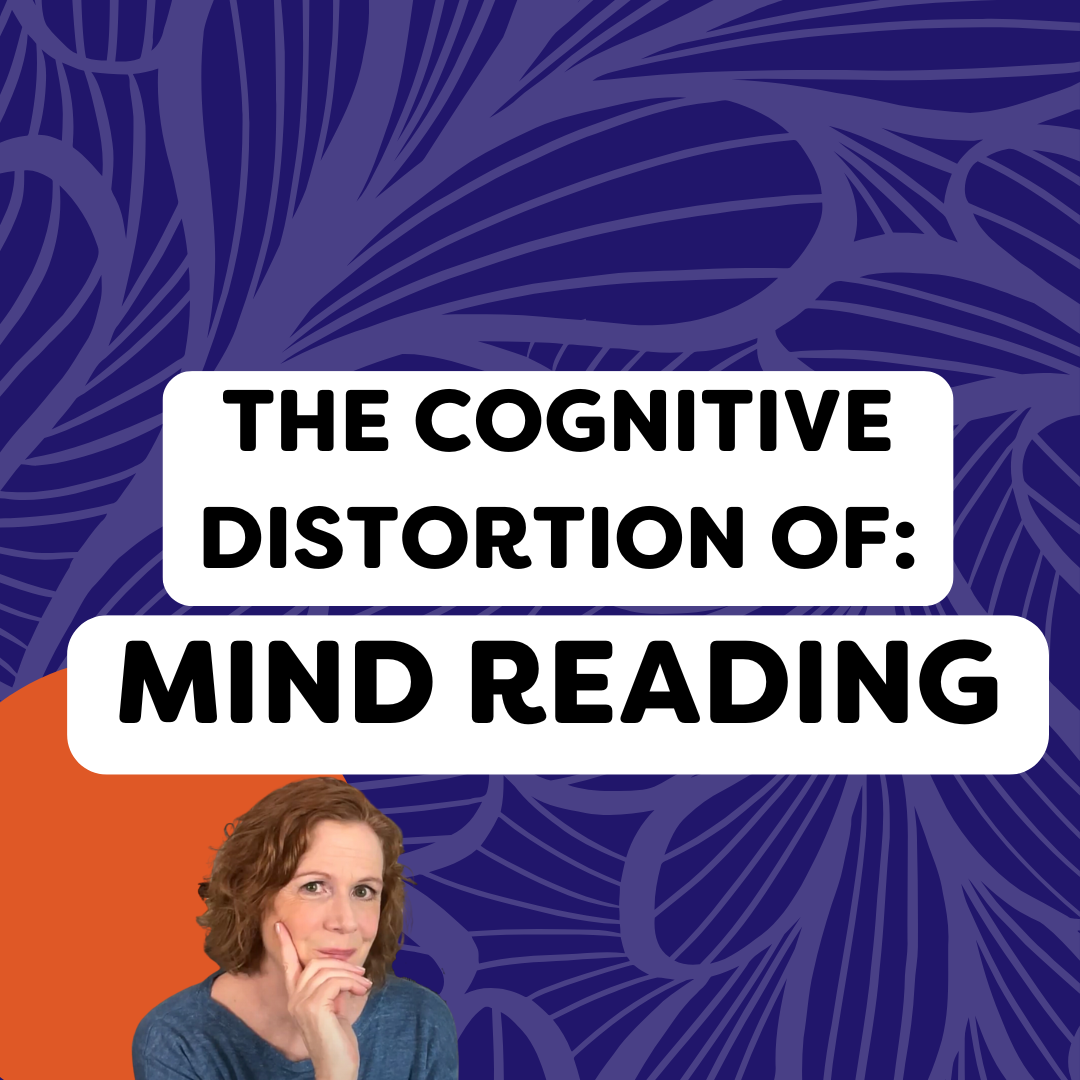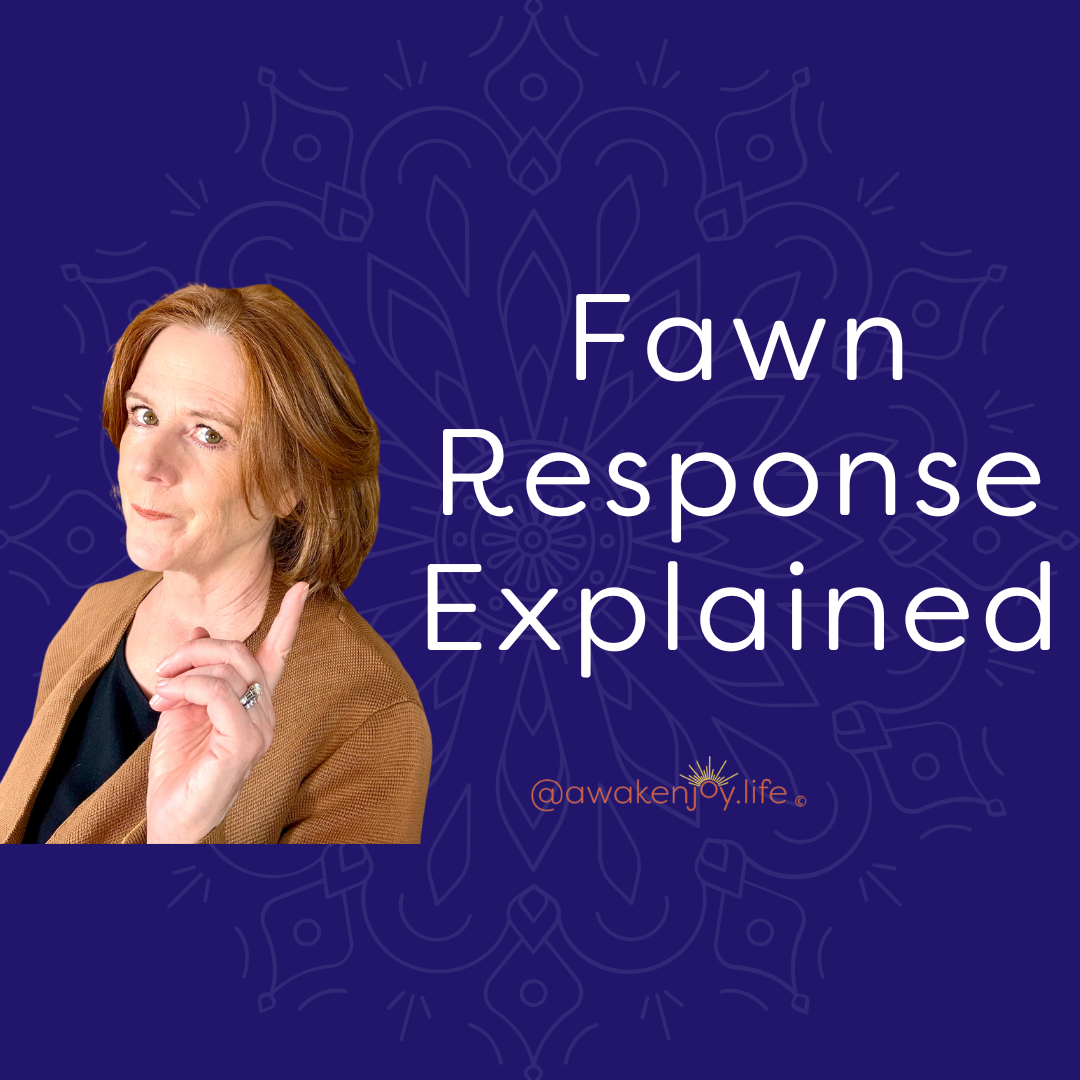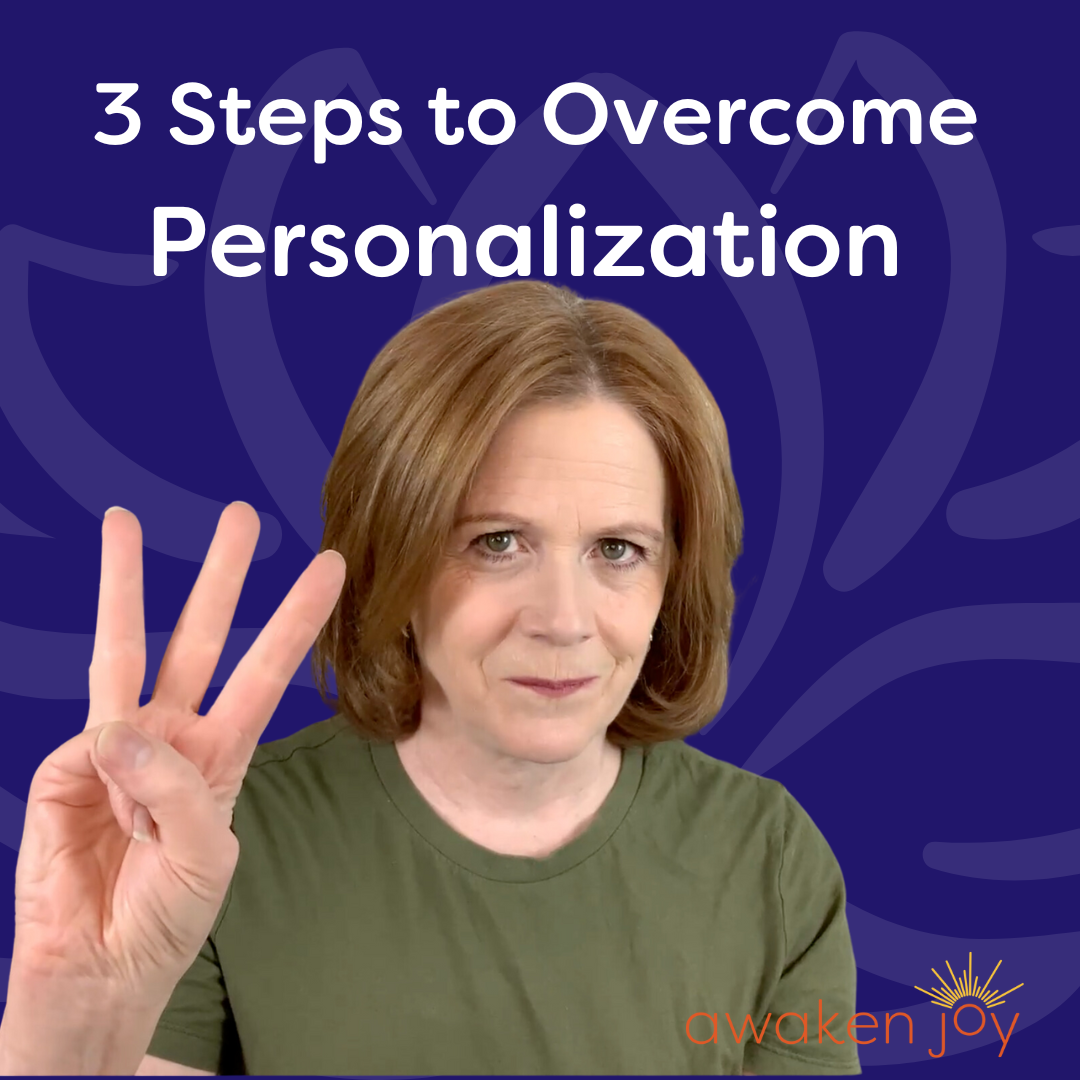The Cognitive Distortion of Mind Reading
Barbara Heffernan • December 3, 2024

Mind Reading: A Cognitive Distortion that can really get us into trouble.

We actually have a bias in our brains that inclines us towards mind reading, that I’ll explain below.
In today's blog, I'll explain what mind reading is so you can identify whether or not you do it, which areas you do it in and even how much you do it. We're going to talk about why it's a problem, and then I'm going to give you some techniques to overcome it.
Mind reading can lead us into emotional spirals of anxiety, depression, anger or grief for no reason whatsoever, because our mind reading is usually not accurate.
Mind reading is basically assuming you know the other person's motivations and intent behind something they say or an action they take, when you haven't asked for clarification. You don't have all the information, but you are just going to jump to a conclusion that you know what that behavior meant or you know what that comment meant.
You might also be aware of when people do this to you. This happened to me recently, and it can really drive me nuts when people will jump to a conclusion about what my motivation is when they haven't asked any clarifying questions!
When we put our own interpretations on somebody else's words or behaviors, we're actually blocking our understanding of the other person. We're actually limiting our ability to get to know the person if it's someone we want to get to know. And then, as I said, we're also sending ourselves into a whole emotional rollercoaster, which is not necessary.
Let's talk about some examples.
A coworker who is usually pretty friendly with you just rushes by you, and then you don't see them for the next two days. You think you did something wrong. You think they are mad at you. Weeks later, you find out it had nothing to do with you. They were dealing with an intense emergency. Yet you personalized it using your “mind reading skills” to decide what the problem was.
Another example is you send a friend a text and they don't respond. You immediately think they're mad at you, or you think something terrible happened to them. And while thinking something terrible happened to them may not sound like mind reading because it's not interpreting their motivation or intention, it actually is mind reading because you're putting your own behavior onto what you are expecting from them.
So if you're somebody who responds to texts quickly and this other person sometimes does, but sometimes doesn't, when you jump to the above conclusions, you are assuming that they live by your rules. That would lead you to believe that if they could text back, they would. So therefore something must have happened to them.
So a slightly more detailed example that I think will help you understand the problems with mind reading is a client of mine who had recently become the number two person in an organization and it was a new position. The organization was run by the owner and he was creating this number two position so that he could both expand the business but then also pull back and not have to work so much. But my client was frequently frustrated because he felt like he was being micromanaged.
Sometimes the owner of the business would jump in and try to fix an issue before my client felt it was needed. And then sometimes the owner was talking directly to the people who were reporting to my client. My client was interpreting this as “He doesn't think I'm good enough. He doesn't think I'm strong enough. He's probably unhappy that he hired me.”
My client was beginning to look for another job. A contributing factor here is that my client did
feel overwhelmed by the job. He wasn't feeling super confident. And his mind reading was contributing to this lack of confidence.
However, when he actually sat down with his boss, his boss started to tell him how happy he was that he had hired him. The boss said he was very pleased with my client's performance. At that point, my client began to ask a few clarifying questions.
So what was really going on is that the boss had never before delegated some of these responsibilities to anyone else, He was used to running the business by himself. He also had direct relationships with the employees who used to report directly to them, and the boss wasn't following the protocols that would be in his own best interest. So it actually had nothing to do with my client.
If my client didn’t tend toward Mind Reading, and if he didn’t have an underlying belief of not being good enough, he would have addressed the problem directly. He could have gone to his boss and said, “Hey, I thought you wanted me to take care of this. I noticed you jumped in. Is this something you don't want me to take care of?"
If you can ask questions in an open way where you are not putting your assumptions and rules on the other person, you will get valuable information.
Another real life example is from when I would work with couples. This would happen frequently. One person in the coupleship would mention something that the other one was sensitive to. And then the one who was sensitive to that would get furious because they would assume that their spouse or partner had mentioned that just to get under their skin. They wouldn't ask a clarifying question such as, “Hey, I'm really sensitive about that topic. Can I ask you why you're bringing it up?” That question wouldn't happen.
They would just get furious. The spouse would maybe not even know why they were so furious. The spouse would feel unheard because they were probably trying to say something relevant and the whole thing would blow up into a fight that might not be resolved for days.
That mind reading of attaching a negative motivation to the other person causes a lot of problems in couples. In fact, I think it was one of the core issues creating problems for couples.
Let me know if those examples made sense, by commenting below! I’d love to know!
How Mind Reading Comes From Our Negative Core Belief(s)
Recurring themes underlie a lot of our cognitive distortions. These themes reflect our negative core beliefs. They underlie the way we distort the world. Our negative core beliefs lead to rules and assumptions about the way we should be, the way others should be, and the way the world should work.
So for the client I discussed above who who filled in the number two position, it was very clear that his negative core belief was some form of “I'm not good enough.”
It had formed very early in his life and it was a framework that he put on the world. Negative core beliefs are like a lens through which we see the world.
So when things didn't go the way the client thought they should go, he would feel ”I'm not good enough.”
[In case you haven’t accessed
my free PDF Transform your Negative Core Beliefs. I will link it here.Many people have found it extremely helpful in identifying their core negative belief, and in learning techniques to turn it into a positive adaptive belief]
Investigating and healing the negative core belief is the inner core work that facilitates changing our thoughts and feelings in the current day. Sometimes cognitive behavioral therapy techniques do not go deep enough.
Here is an example to illustrate this:
If I grew up with a belief that "other people's needs are more important than mine," that "my needs don't count," or maybe even "I don't count," then I probably develop some rules and assumptions about the world that I should take care of other people's needs first. I might also have an assumption that if I am a nice and responsible person, I can never say no. If somebody else says they need something (whether they actually need it or not), I should do it.
And therefore, if I have that rule and assumption about the world, then if somebody says no to me, I might jump to the conclusion they're not nice or they don't like me. Rather than understanding they might just have too many conflicts, and that they're practicing self-care, I will personalize it in a way that reflects my negative core belief.
The human brain has a bias that contributes to mind reading. And that bias is that we think that other people think the way we do. And when they don't think the way we do, we're always surprised.
Because of this, we also assume that other people have the same rules and assumptions that we have.
This is problematic because it blocks our ability to see reality.
I saw this as a huge problem in the clients that I worked with who were in relationship with somebody who had a personality disorder (narcissistic personality disorder, for example). The client would keep going over and over, “But how could he have done that?” “How could she do that? I would never do that. If X, Y, and Z were the circumstances, I would never do that. So I don't think they would've done it. So something must have happened that made them do that. Maybe it was me. Maybe I didn't do something right.”
They were always in this confusion and investigation, almost like a detective story, investigating what could it have been that caused the person to act that way when these were the circumstances?
With somebody who is personality disordered, my guidance was always to accept that their brain works differently than yours. They do not think with the same rules and assumptions.
So that is an extreme example of somebody whose mind doesn't work the way yours works, but just be careful that you're not applying your framework onto somebody else.
Help to Change Mind Reading
If you do a lot of mind reading, what can help?
Number one is to fully acknowledge that you do it. Know when you're doing it. You might feel that you have all sorts of evidence that supports your conclusion, but leave a bit of a question mark in there.
And then the next thing to do is to emotionally regulate. Because generally if something happens and we go into one of those spirals of mind reading, we're getting anxious, depressed or angry. Simply taking a moment to emotionally regulate is extremely helpful.
So diaphragmatically breathe, ground. Pay attention to what's around you in the moment. Feel your feet on the floor.
Once you feel somewhat more calm, come back to the situation and think through “What questions do I need to ask this person? What additional information do I need before I come to a conclusion?”
And then, the last step, is to ask those clarifying questions (if you can, obviously!).
Ask them in an open, curious way where you're not prejudging the responses.
And if you are not in a situation to ask, hold back from coming to a conclusion!
Let me know if this was helpful - I would love to know!
Blog Author: Barbara Heffernan, LCSW, MBA. Barbara is a licensed psychotherapist and specialist in anxiety, trauma, and healthy boundaries. She had a private practice in Connecticut for twenty years before starting her popular YouTube channel designed to help people around the world live a more joyful life. Barbara has a BA from Yale University, an MBA from Columbia University and an MSW from SCSU. More info on Barbara can be found on her bio page.
Share this with someone who can benefit from this blog!

Scientifically proven, simple technique to calm an amygdala hijack. This blog describes this simple technique, provides the scientifically proven benefits of using this technique and shares 7 steps to implement this technique in the most effective way! Based on Lieberman's scientific research on affect labeling.
The Technique: Affect Labeling
Affect labeling is putting into words what emotion you are feeling.

Understanding the Fawn Response The Fawn response is a behavior developed in childhood, often connected to complex trauma. It could even be little "t" traumas on an ongoing basis, where as a child, you learned to subjugate yourself to the caregiver in order to stay in relationship and survive. This becomes a deeply ingrained survival behavior which can become habitual. As you grow up, it gets applied to all situations. This blog will go through nine components required for healing. - The first three focus on internal work - The next three are more practical, action-oriented techniques - The last three address deeper psychological work Internal Work (Components 1-3) # 1. Recognize that fawning developed because it was necessary at the time Understand that fawning was a survival strategy, and it might have been the very best choice available to you. It may also have been, in many ways, the only choice. Even today as adults, there are situations where choosing a fawning-type behavior might actually be the best choice. This is important to understand because we don't want to eliminate this response entirely—we want to get to the point where it's not an automatic go-to reaction. Instead, we want to reach a place where you can consciously think, "I'm choosing to do this right now." Acknowledging that this developed as a survival strategy helps prepare you for the next two components. [ For more information on what the fawn response is and why it developed, read this blog] # 2. Begin to acknowledge and validate your own feelings If you grew up in an environment where you learned to fawn, my guess is that not only were your caregivers not paying attention to your feelings, but you also had to subjugate your own feelings to the point where you weren't aware of what you were feeling. As an adult, it's necessary to begin recognizing and identifying your emotions: "I'm feeling angry" or "sad" or "frustrated" or "irritated." Begin to acknowledge and even verbalize what you're feeling. The simple act of labeling your emotion calms down your fight-flight-freeze response and increases activity in the areas of the brain that help you solve problems. There is research that shows this happening via fMRIs! # 3. Practice self-compassion Understanding why this behavior developed can help you practice self-compassion. Changing these behaviors is hard and takes time. If you find yourself automatically fawning and later yelling at yourself, try not to do that—you're basically re-traumatizing yourself for a behavior you learned for survival. Instead, try noting it with self-compassion: "Interesting, I fell into that pattern again." And then connect this to the next step by adding, "I fell into that pattern again because of this situation." Observe with compassion rather than judgment. Practical Tools (Components 4-6) # 4. Identify situations that trigger fawning behavior Notice which situations trigger your fawning behavior. As you review these situations, see if there are patterns similar to those you experienced as a child. They may reflect situations that were emotionally or physically dangerous, or that created a rift between you and your caregivers. Identifying these situations helps you understand what patterns became embedded in your emotional brain. As you observe these patterns, bring in self-compassion and that observer mindset. This approach is much more productive than criticizing yourself. As you identify these patterns, you can connect them to current situations: "This situation at work with a difficult authority figure is recreating this childhood pattern for me." You are bringing in your frontal lobe to analyze the emotional reaction, which helps you realize, "That was threatening to my very existence when I was a child, but it is not threatening to my existence right now." This recognition is crucial because automatic fawning behaviors come from a need to survive immediate danger. The uncertainty of longer-term consequences (like losing a job) might be problematic, but it's not an immediate survival threat. Differentiating between then and now helps calm your fawn response. # 5. Keep a journal to track people-pleasing behaviors Keep a journal for 30 days. Journal on this question: "Did I say or do something today to please someone else that was at my own expense?" As you review the events of each day, you might realize, "I didn't do it this situation, but I did do it in those five situations." Again, maintain self-compassion with no judgment—just observe and be aware this will take time. This question gets at the heart of the issue: What did you do today that ignored your own values or needs in order to stay in relationship with someone else, avoid criticism, or prevent rejection? Verbalizing this through an audio journal or writing it down utilizes different parts of your brain that help you comprehensively understand what's happening. # 6. Practice emotional regulation tools daily Implement diaphragmatic breathing, grounding exercises, or any techniques that calm your physiology. Practice these regularly, not just in the middle of triggering events. You can weave these practices throughout your day. Set an alarm for three different times during the day, and when it goes off, simply take three deep diaphragmatic breaths. No one needs to know you're doing it—you can do it anywhere, and it's free. While it might not feel immediately helpful, you're stimulating a different part of your nervous system that helps you realize, "In this situation, it would not be life-threatening if the relationship were severed. I'm not in a situation where my immediate survival is at stake." When you feel safe enough, your normal breathing pattern will naturally be diaphragmatic. It's all a feedback loop—a body-based technique that communicates to the rest of your brain. The fawn response is differentiated from the fight-flight-freeze response. Sometimes they're grouped together, but I think it's more useful to separate them (I'll cover this topic in the future if you're interested—let me know in the comments). The fawn response uses different parts of the nervous system and brain because it's largely about staying in connection with others. That said, knowing whether your underlying response is fight, flight, or freeze beneath the fawn behavior can be helpful. People who fawn typically have either a flight response (wanting to run away) or a freeze response. Fighters rarely develop the fawn response. I recently created videos and blogs about calming the fight-flight-freeze response that might be useful for you. Deeper Work (Components 7-9) # 7. Recognize your negative core beliefs Identify what beliefs developed when you were young that led you to fawn, and what beliefs developed as a result of fawning. A common belief for people who fawn is "my needs don't matter," or even " I don't matter." Other common beliefs include "I'm not good enough," or "I'm powerless." A general feeling of being in danger is also common. Identifying these negative core beliefs and beginning to use tools to rewire them is extremely helpful. [I have a free PDF that helps you identify these beliefs and learn tools to rewire them. You can find it by clicking here ]. # 8. Learn to recognize and separate from limiting thoughts Notice when your behavior is driven by your negative core beliefs, whether you're fawning or not. You might operate from these beliefs almost all the time, even when not actively people-pleasing. Begin to separate yourself from these thoughts. Not all of our thoughts are true. Not all of our beliefs are true. We can "diffuse" from our thoughts by using our observer mind: "Interesting, I'm thinking that again, but I know it isn't necessarily true." A helpful technique is to "practice as if." If you feel like your needs don't matter, pretend that they do matter. Ask yourself, "What would I do right now if my needs mattered?" You can practice this approach in small ways. Your behavior, even if it is coming from a place of pretense, will actually begin to rewire these beliefs. # 9. Establish healthy boundaries I've placed this component last because establishing healthy boundaries isn't simply about saying "no." (Sometimes saying no is a healthy boundary, but sometimes it's not—and boundaries encompass much more than that). Healthy boundaries require a deep understanding of yourself and your values, and an understanding of where you end and others begin. To truly understand healthy boundaries requires deep inner work. The other components we've discussed, particularly emotional regulation, are prerequisites for establishing boundaries. Until you develop a certain level of emotional regulation, it's nearly impossible to implement healthy boundaries. When your amygdala is firing with the fight-flight-freeze response, your response is automatic and happening too quickly for your rational brain to intervene. Your rational mind might know "I should be saying no right now" or "I should leave this conversation," but the panic response has already set in, and your brain is focused solely on keeping the relationship intact and staying safe by avoiding conflict. This is why healthy boundaries aren't just about learning more information. You've probably read extensively about boundaries and have cognitive awareness of what healthy boundaries might look like. Then you get frustrated when you can't implement them because no one talks about the fact that boundary-setting starts with emotional regulation. Healthy boundaries also require healing negative core beliefs and knowing (even if you don't yet feel it ) that you can be safe without maintaining a toxic relationship, you can be safe even when there's conflict. A Structured Approach to Healing In my boundary program , I've designed an approach which walks you through the CORE components of healing and establishing helthy boundaries. The program helps you: develop the emotional regulation you need to begin to set boundaries identify and heal the negative core beliefs that are driving unhealthy boundaries learn assertive communication (as opposed to passive or aggressive) understand how to set boundaries and consequences and begin to do so! (For more info on the boundary program, click here) Learning assertive communication is essential because people with fawn patterns often use passive communication. Assertive communication represents the middle ground between passive and aggressive communication. It embodies the principle "I'm okay, you're okay." Many people who fawn misinterpret assertive communication as aggressive, and since they don't want to be like their aggressive abuser, they default to passive communication. But there is a healthy middle ground. As always, I'd love to hear your thoughts and questions—please comment below. I truly hope this is helpful, and I'll see you next week.

All anxiety disorders are driven by an amygdala hijack. This blog explains how this work, why it is a problem and what to do about it. If your anxiety is controlling your life, ruining your happiness, and maybe even impacting your health, know that it is not all in your head. Your nervous system has been hijacked, and understanding this can really help you on your path to recovery.








